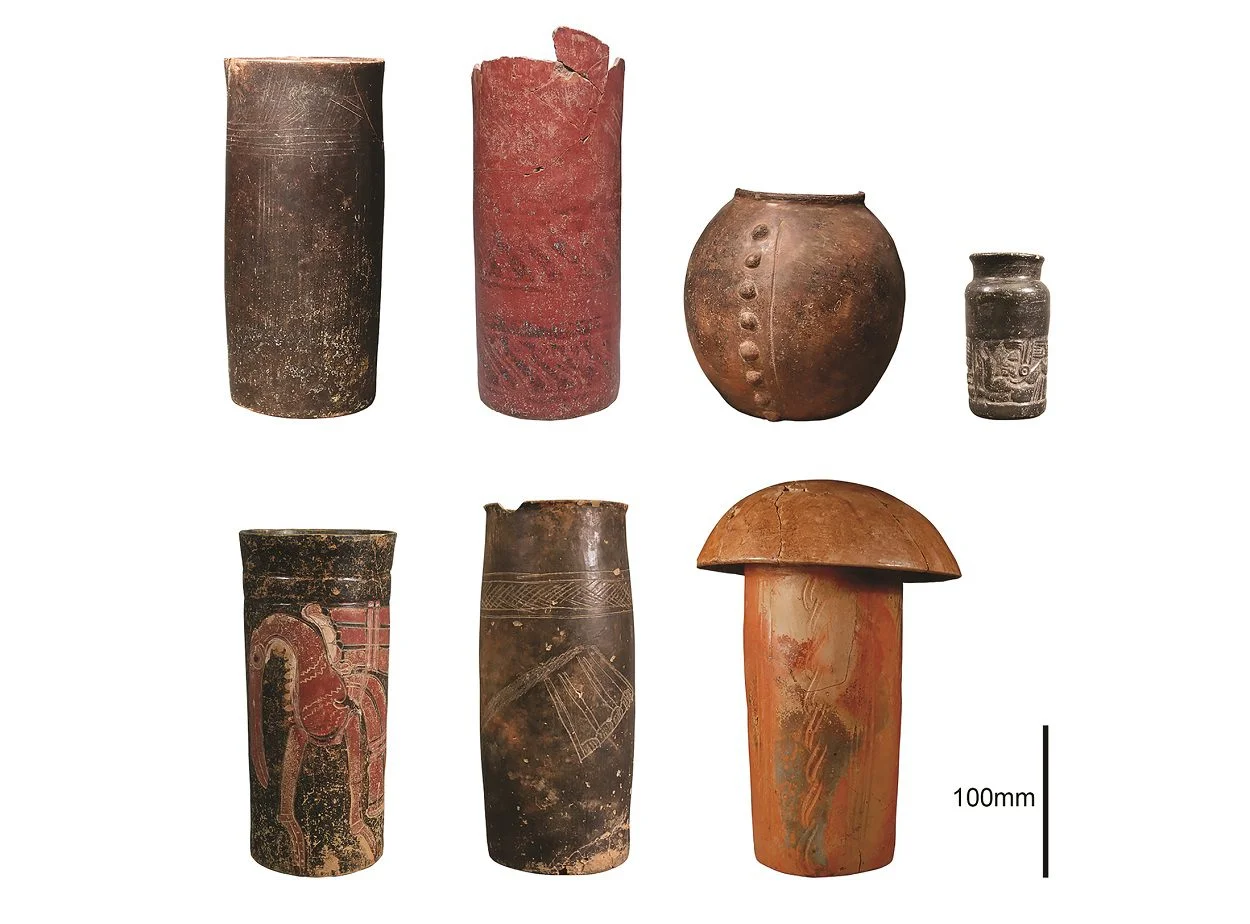A new study, published in the journal Antiquity, has found traces of nicotine in ceramic vessels discovered at the ancient city of Cotzumalhuapa.
Cotzumalhuapa was a Maya polity located near the town of Santa Lucía Cotzumalguapa in southern Guatemala.
Cotzumalhuapa was a major urban centre spanning over 10 square kilometres, encompassing the sites of El Baúl, Bilbao, and El Castillo, in addition to numerous small settlements and farmsteads.
The archaeological zone mostly dates from the Late Classic period in Mesoamerican chronology, however, the archaeological record also indicates continuous occupation from the Middle Preclassic period.
An analysis of ceramic vases found at Cotzumalhuapa near the acropolis of El Baúl has revealed the chemical residue of nicotine, suggesting that the vessels were used for ritual and therapeutic purposes. No traces of cacao, chili peppers, and achiote (a food dye and condiment) were found, however, three of the vessels came back positive for nicotine.

The use of tobacco in Mesoamerican rituals is widely known from written sources and depictions of tobacco leaves on sculptures and frescoes. “We knew that tobacco was a very important substance employed for a variety of ritual and therapeutic purposes in ancient Mesoamerica and across the New World”, says co-author of the research Dr Oswaldo Chinchilla Mazariegos from Yale University.
The discovery was made by a team of researchers from Yale University and Lehman College of The City University. “We hoped that analysis of residues inside these well-preserved vessels would reveal details about the use of plants in ritual activities”, states Dr Chinchilla Mazariegos.
The form of the vessels suggest that they were used to contain liquid, indicating that tobacco was likely consumed as a liquid infusion. According to the study: “This is clear archaeological evidence for tobacco use in Mesoamerica, suggesting that the drinking of tobacco infusions may have been practiced together with smoking or sniffing.”
The widespread use of tobacco for both ritual and therapeutic purposes (the two were almost certainly linked) is well-documented from early colonial to modern times, but the results indicate that this was taking place centuries earlier.
Header Image Credit : Antiquity
Sources : Antiquity – Residue analysis suggests ritual use of tobacco at the ancient Mesoamerican city of Cotzumalhuapa, Guatemala – Adam Negrin, Oswaldo Chinchilla Mazariegos, Cameron L. McNeil, W. Jeffrey Hurst & Edward J. Kennelly. https://doi.org/10.15184/aqy.2024.13





